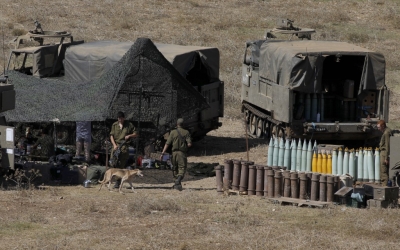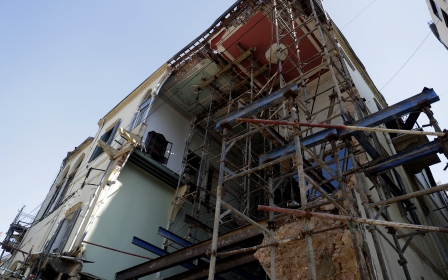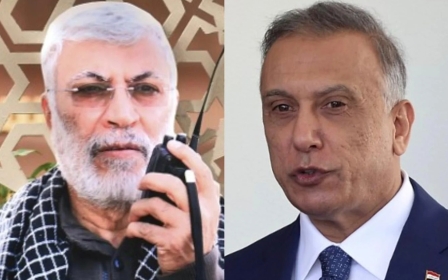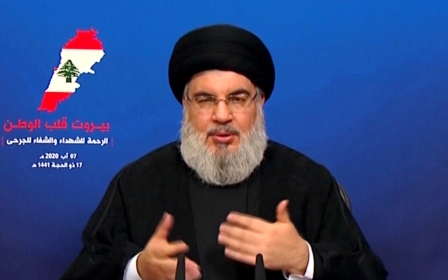Nasrallah warns Israel: Hezbollah will avenge slain fighter
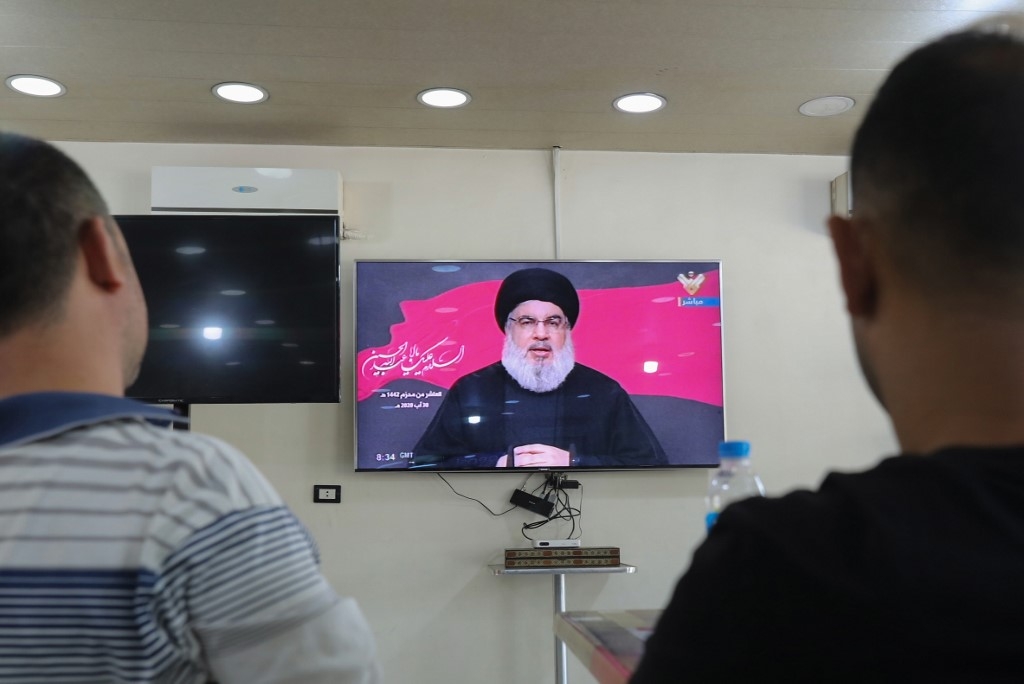
Hezbollah leader Sayyed Hassan Nasrallah said on Sunday that it was only a matter of time before his group killed an Israeli soldier to avenge the death of one its fighters in Syria, but it would not be drawn into clashes on the Lebanon-Israel frontier.
Tensions on the Israel-Lebanon border have been running high after the Shia movement said one of its members was killed in an apparent Israeli air strike in July in Syria. Israel and the Iranian-backed Hezbollah last fought a war in the summer of 2006.
"Israel needs to understand that when they kill one of our mujahideen, we will kill one of their soldiers. This is the equation," Nasrallah said in a televised speech.
"We will not engage in exchanges of fire... because this is what Israel wants," he said.
"They know that we are not looking for a publicity achievement, but that we are looking for soldiers to kill and they are hiding them like rats."
Earlier this week the Israeli military struck what it said were Hezbollah posts after claiming that shots were fired at troops in Israel, which Nasrallah on Sunday denied. Last month, Israel said the group carried out an infiltration attempt, a charge it denied.
No casualties were reported on either side in the incidents.
Nasrallah said Hezbollah would not be drawn into clashes that would "waste the blood of our martyrs and our equation".
After two Hezbollah members were killed in Damascus in 2019, Nasrallah vowed the group would respond if Israel killed any more Hezbollah fighters inside Syria, where they deployed as part of Iranian-backed efforts to support President Bashar al-Assad in a war that spiralled out of 2011 anti-government protests.
Israel has stepped up strikes on Syria in recent months in what western intelligence sources say is a shadow war, approved by Washington, that has undermined Iran's military power in the region without triggering a major increase in hostilities.
On Saturday, Nasrallah said that the US has proposed a deal to his group, including power and money incentives, but that he had rejected it.
"The Americans offered us power and money and developing the political system in our favour, in exchange for giving up on our cause, but we did not and will never accept."
Open to French proposal
Meanwhile, Nasrallah said in his Sunday speech that his movement is "open" to a French proposal for a new political order for Lebanon provided that there is national consensus.
"On his latest visit to Lebanon, we heard a call from the French president for a new political pact in Lebanon... today we are open to a constructive discussion in this regard," Nasrallah said.
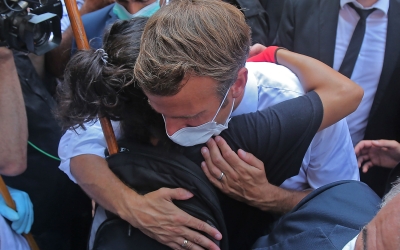
"But we have one condition: this discussion should be carried out... with the will and consent of the various Lebanese factions."
Nasrallah did not elaborate on what kind of changes his movement was willing to consider but cited criticism from "official French sources" over Lebanon's "sect-based political system and its inability to solve Lebanon’s problems and respond to its needs."
Lebanon recognises 18 official religious sects and its 128 parliamentary seats are divided equally between Muslims and Christians, an arrangement unique in the region.
However, governments born out of this system have been prone to deadlock and have failed to meet popular demands for better living conditions.
French President Emmanuel Macron, the first world leader to visit Lebanon after the devastating 4 August Beirut port blast, will return on Monday to press for reform and reconstruction.
On his earlier visit days after the blast, the French president said Lebanese leaders had a "huge" responsibility, "that of a revamped pact with the Lebanese people in the coming weeks, that of deep change".
Middle East Eye delivers independent and unrivalled coverage and analysis of the Middle East, North Africa and beyond. To learn more about republishing this content and the associated fees, please fill out this form. More about MEE can be found here.


